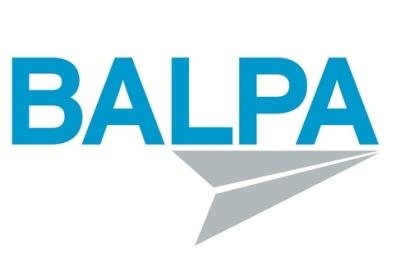Fri, May 15, 2015
Presents Safety Plan At Summit Organized By Pilots
A majority of British people think there should be stricter rules on the qualifications needed to fly a drone in urban areas, and half think there should be prison sentences for those flying drones in a way that endangers an aircraft, according to a new survey that presented at a Drone Safety Summit organized by UK pilots.

The British Airline Pilots’ Association (BALPA) will present the survey results at a summit on the safety challenges raised by Remotely Piloted Aircraft Systems (RPAS). The BALPA summit brings together UK and international pilots, the UK safety regulator (CAA), the Police, RPAS and model aircraft owner groups, civil servants, airport operators and other safety specialists.
The BALPA ComRes survey of public opinion on remotely piloted aircraft found:
- When asked what qualifications drone pilots should require, the largest proportion of British adults think that only someone with a license requiring the same amount of training as for piloted aircraft should be able to fly drones over urban areas (40%). This is double the proportion of people (20%) that think that anyone with a current commercial UK drone license should be able to fly drones over urban areas (obtained through 2 days ground school, 2 hours flying and one flight test).
- Around a third think no one should be able to fly drones over urban areas (31%).
- Half of the representative sample of British people surveyed think that the most appropriate level of punishment for someone flying a drone that endangers an aircraft, but does not cause the aircraft to crash, is a prison sentence (52%). A quarter think that a fine is the most appropriate level of punishment (24%)
“Drone technology is taking off and we want to make sure the country can benefit from the business and leisure opportunities that it could offer without putting flight safety at risk," said BALPA General Secretary Jim McAuslan. 'Pilots and the public want the UK to be a ‘safe drone zone’ and these polling results show that the public backs stricter laws on training for drone pilots and punishment for endangering aircraft.

“The UK can lead the way on safely introducing small drones and set the standard for the passenger aircraft of the future. Pilots are also calling for the British public to be informed, involved and consulted before companies fly large, remotely-piloted aircraft over their homes and alongside their passenger planes.”
To ensure that the UK is a safe zone for RPAS BALPA is calling for:
- Every operator flying small RPAS for commercial purposes to be licenced, appropriately trained and insured for any potential damage or injury to people or property.
- Rules covering all small RPAS operators to be properly enforced, including restricting flight to below 400 feet and no closer than 50m to people or property.
- The public to be fully consulted before any large RPAS is flown commercially over the UK and the strict rules governing this agreed by passengers and residents, pilots, the regulators, Government and national Parliaments.
- No commercial flying of RPAS beyond the ‘line of sight’ of the operator until the major security concerns are fully addressed, including the security of the datalink to the RPAS and ground station from where the RPAS is operated.
- A 100% reliable ‘sense and avoid’ system for all large RPAS flown in airspace with other aircraft to prevent collisions.
- That only a trained pilot should be allowed to fly an RPAS in airspace used by other passenger, freight or light aircraft.
The new BALPA Safety Plan sets out the challenges that UK pilots face in working with Government, airlines and UK and EU regulators to make every flight a safe flight.
More News
Runway Lead-in Light System Runway Lead-in Light System Consists of one or more series of flashing lights installed at or near ground level that provides positive visual guidance a>[...]
Aero Linx: Aviation Without Borders Aviation Without Borders uses its aviation expertise, contacts and partnerships to enable support for children and their families – at hom>[...]
Dave Juwel's Aviation Marketing Stories ITBOA BNITBOB ... what does that mean? It's not gibberish, it's a lengthy acronym for "In The Business Of Aviation ... But Not In The Busine>[...]
From 2010 (YouTube Version): Yeah.... This IS A Really Cool Job When ANN's Nathan Cremisino took over the lead of our Aero-TV teams, he knew he was in for some extra work and a lot>[...]
Also: Junkers A50 Heritage, Montaer Grows, Dynon-Advance Flight Systems, Vans' Latest Officially, the Carbon Cub UL and Rotax 916 iS is now in its 'market survey development phase'>[...]
 ANN's Daily Aero-Term (04.24.24): Runway Lead-in Light System
ANN's Daily Aero-Term (04.24.24): Runway Lead-in Light System ANN's Daily Aero-Linx (04.24.24)
ANN's Daily Aero-Linx (04.24.24) Aero-FAQ: Dave Juwel's Aviation Marketing Stories -- ITBOA BNITBOB
Aero-FAQ: Dave Juwel's Aviation Marketing Stories -- ITBOA BNITBOB Classic Aero-TV: Best Seat in The House -- 'Inside' The AeroShell Aerobatic Team
Classic Aero-TV: Best Seat in The House -- 'Inside' The AeroShell Aerobatic Team Airborne Affordable Flyers 04.18.24: CarbonCub UL, Fisher, Affordable Flyer Expo
Airborne Affordable Flyers 04.18.24: CarbonCub UL, Fisher, Affordable Flyer Expo




